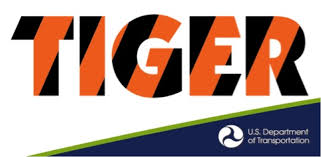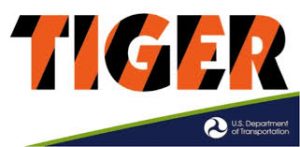
One of the most astounding statistics relative to the annual award of the Transportation Investment Generating Economic Recovery (TIGER) grant program is the amount by which applications for funding exceed the funding available. Today, U.S. Transportation Secretary Anthony Foxx announced that the U.S. Department of Transportation (USDOT) grant program has received 585 applications from throughout the nation for the $500 million in available TIGER funds. The funding sought in those applications totals $9.3 billion – 18 times, or $8.8 billion more than is available.
 Deteriorating transportation infrastructure, coupled with declining budget revenue, have both urban and rural communities of all sizes exploring all possible funding mechanisms and sources of additional revenue to meet their transportation needs. In the last seven years, TIGER grants have provided nearly $4.6 billion in funding for 381 projects in all 50 states.
Deteriorating transportation infrastructure, coupled with declining budget revenue, have both urban and rural communities of all sizes exploring all possible funding mechanisms and sources of additional revenue to meet their transportation needs. In the last seven years, TIGER grants have provided nearly $4.6 billion in funding for 381 projects in all 50 states.
The TIGER funding also is key in leveraging additional funding from private-sector partners, states, local and tribal governments, metropolitan planning organizations, ports and transit agencies. Public-private partnerships (P3s/PPPs) have also resulted from use of TIGER funds. In 2015, the $500 million in TIGER funds that were allocated were used by the winning applicants to leverage enough additional funding to support $1.4 billion in total investments.
Last year, one of the rural projects awarded TIGER funding was for a regional truck parking information and management system. TIGER funding of $25 million was allocated toward the $28.6 million project that would be implemented in eight states. The project involves using current technology to provide information through such sources as smartphones, websites and dynamic road signs to alert truckers to areas of safe truck parking.
Also in 2015, the city of Lowell, Massachusetts, won a TIGER grant of more than $13.3 million toward a $16.7 million project to replace three bridges and repair an additional three over power canals in the downtown area. The project is in a low-income area and will improve connectivity while providing additional access to employment, education, health care and other services for residents of the area.
A public-private partnership (P3/PPP) evolved as a result of a previous year’s $20 million TIGER Transportation Infrastructure Finance and Innovation Act (TIFIA) payment to enhance a TIFIA loan. The funds were earmarked to build nearly 30 miles of high-occupancy toll (HOT) lanes. Private-sector funding of $550 million and $50 million in Virginia Department of Transportation funds helped finance the P3. The private partner was made responsible for the design, construction and financing of the project as well as for its long-term operation and maintenance.
Urban area 2016 TIGER grants will receive a minimum award of $5 million and rural area awards will get no less than $1 million. The maximum award is $100 million. Private-sector firms should pay close attention when these awards are made, usually in the fall. The TIGER-funded projects will result in a variety of contracting opportunities for private-sector vendors of all sizes, as well as possible public-private partnership opportunities.
